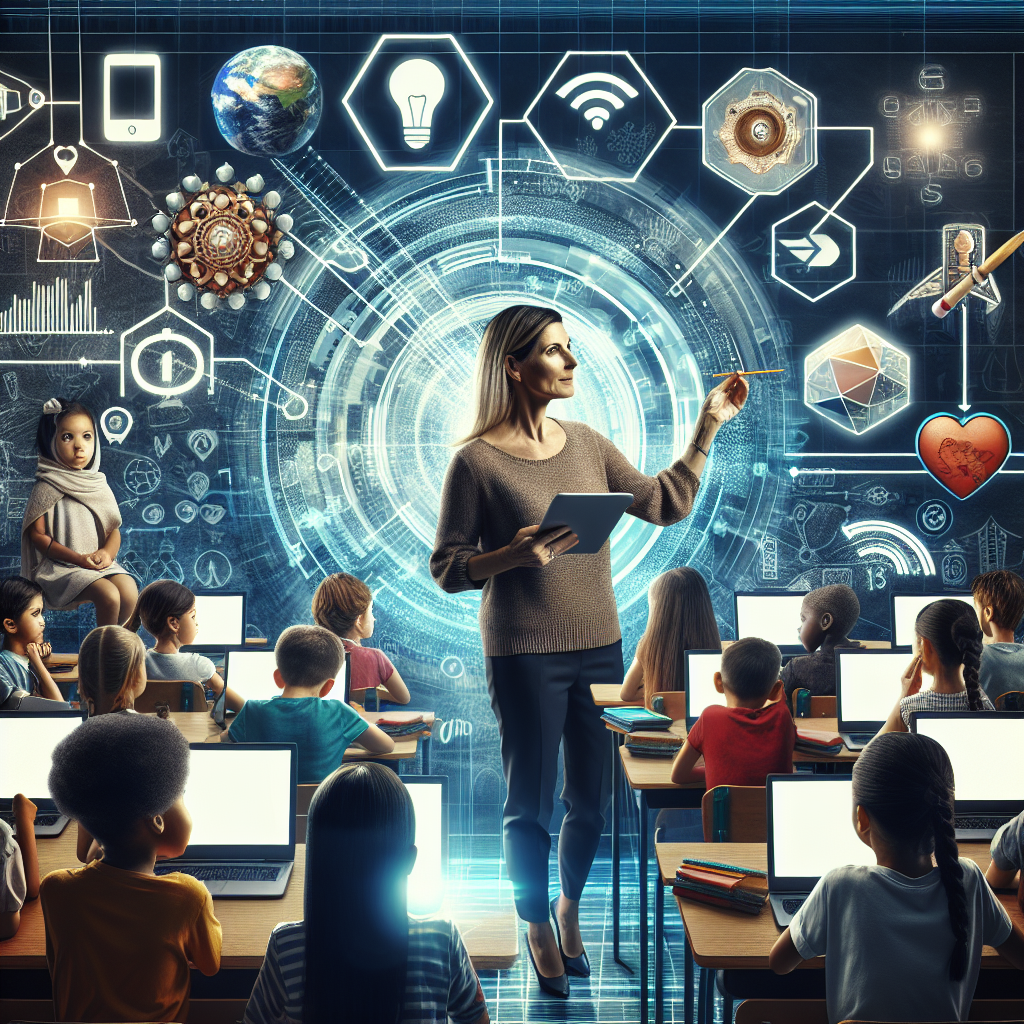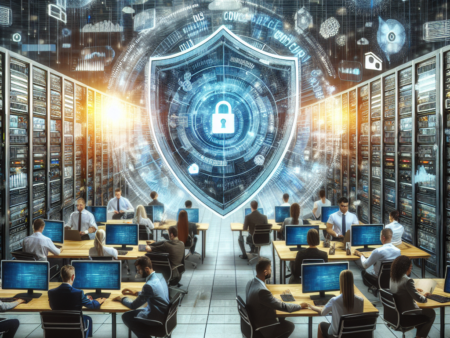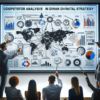Deskripsi meta: Transformasi digital di sektor pendidikan: Inovasi dan tantangan dalam mengadopsi teknologi untuk meningkatkan pembelajaran.
Transformasi Digital di Sektor Pendidikan: Inovasi dan Tantangan
-
Table of Contents
- Introduction
- The Digital Transformation Landscape in Indonesia
- 1. Increasing Access to Education
- 2. Personalized Learning
- 3. Collaborative Learning
- Innovations in Digital Education
- 1. Online Learning Platforms
- 2. Virtual Reality (VR) and Augmented Reality (AR)
- 3. Artificial Intelligence (AI) in Education
- Challenges in Digital Transformation
- 1. Infrastructure and Connectivity
- 2. Digital Literacy and Skills Gap
- 3. Quality Assurance and Content Curation
- Conclusion
Introduction

Digital transformation has become a buzzword in various industries, and the education sector is no exception. In Indonesia, the digital revolution has brought about significant changes in the way education is delivered and accessed. This article explores the digital transformation in the education sector in Indonesia, focusing on the innovations and challenges it presents.
The Digital Transformation Landscape in Indonesia
1. Increasing Access to Education
One of the key benefits of digital transformation in the education sector is the increased access to education for students across Indonesia. With the help of technology, students in remote areas can now access quality educational resources and connect with teachers and experts from around the world. Online learning platforms and virtual classrooms have made education more inclusive and equitable.
2. Personalized Learning
Digital transformation has also paved the way for personalized learning experiences. Adaptive learning platforms use artificial intelligence algorithms to tailor educational content to individual students’ needs and learning styles. This approach allows students to learn at their own pace and focus on areas where they need more support. Personalized learning has been proven to enhance student engagement and improve learning outcomes.
3. Collaborative Learning
Technology has revolutionized the way students collaborate and interact with their peers. Online discussion forums, video conferencing tools, and collaborative platforms enable students to work together on projects, share ideas, and learn from each other. Collaborative learning not only enhances students’ social and communication skills but also prepares them for the collaborative nature of the modern workforce.
Innovations in Digital Education
1. Online Learning Platforms
Online learning platforms have gained immense popularity in Indonesia, especially during the COVID-19 pandemic. These platforms offer a wide range of courses and educational resources, allowing students to learn anytime and anywhere. They often include interactive elements such as quizzes, videos, and gamified learning experiences to keep students engaged.
2. Virtual Reality (VR) and Augmented Reality (AR)
Virtual reality and augmented reality technologies have the potential to transform the way students learn and experience education. VR can create immersive environments that simulate real-world scenarios, enabling students to explore historical sites, conduct virtual experiments, or practice skills in a safe and controlled environment. AR, on the other hand, overlays digital information onto the real world, enhancing students’ understanding of complex concepts.
3. Artificial Intelligence (AI) in Education
Artificial intelligence has found its way into the education sector, offering various applications to enhance teaching and learning. AI-powered chatbots can provide instant support to students, answering their questions and guiding them through the learning process. Intelligent tutoring systems can analyze students’ performance data and provide personalized feedback and recommendations. AI also enables automated grading, freeing up teachers’ time for more meaningful interactions with students.
Challenges in Digital Transformation
1. Infrastructure and Connectivity
One of the major challenges in implementing digital transformation in the education sector in Indonesia is the lack of infrastructure and reliable internet connectivity, especially in remote areas. Without proper infrastructure, students may not have access to the necessary devices or internet connection to fully participate in digital learning initiatives. Bridging the digital divide is crucial to ensure equal opportunities for all students.
2. Digital Literacy and Skills Gap
Digital transformation requires educators and students to have the necessary digital literacy skills to effectively use technology for teaching and learning. However, many teachers in Indonesia may not have received adequate training to integrate technology into their classrooms. Similarly, students need to develop digital literacy skills to navigate online learning platforms and utilize digital tools effectively. Addressing the digital skills gap through training and professional development programs is essential.
3. Quality Assurance and Content Curation
With the abundance of online educational resources, ensuring the quality and relevance of content becomes a challenge. Educators need to curate and evaluate digital resources to ensure they align with the curriculum and meet educational standards. Quality assurance mechanisms and guidelines for content curation need to be established to maintain the integrity of digital education.
Conclusion
Digital transformation in the education sector in Indonesia has the potential to revolutionize the way students learn and access education. It offers increased access, personalized learning experiences, and collaborative opportunities. However, challenges such as infrastructure limitations, digital literacy gaps, and content curation need to be addressed to fully harness the benefits of digital education. By investing in infrastructure, providing training and support for educators, and establishing quality assurance mechanisms, Indonesia can pave the way for a digitally empowered education system that prepares students for the future.







